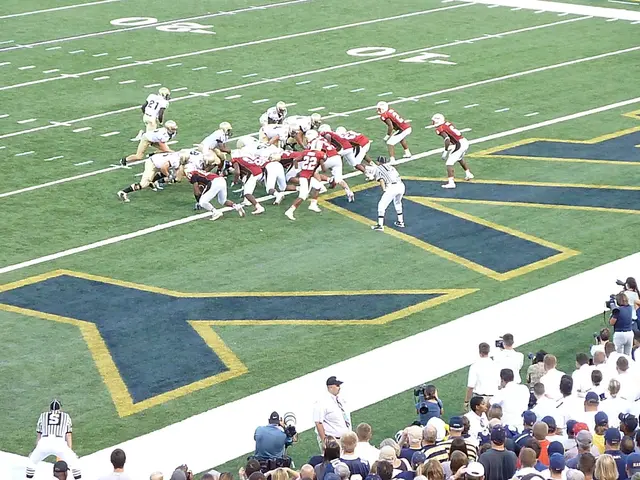Enhance Your Poker Skills with a Single Trick
Mastering Poker: The Power of Folding
In the world of poker, the art of folding is often undervalued, yet it plays a crucial role in the success of professional players. Unlike popular belief, folding isn't a sign of weakness, but a strategic decision that preserves chips and avoids difficult post-flop situations.
The basic principle is simple: you're not paid by the hour, you're paid by the pot, so stop trying to play everything. Instead, focus on playing the right hands. You don't need to win every hand to win money; you just have to win the right hands and not lose big on the others.
Folding marginal hands preflop keeps you out of losing spots. Strong players fold hands like Ace-7 offsuit, 9-5 suited, and Queen-6 suited, as they are not profitably playable. This disciplined pre-flop hand selection helps players stay in control, maintain a healthy stack, and capitalize on their stronger hands or better position.
Avoiding marginal hands out of position is another key strategic reason. Playing too many speculative or weak hands, especially early in the betting order, leads to tricky situations later against raises or re-raises. Folding these hands reduces costly mistakes.
Protecting the stack and long-term success is another benefit of folding. Folding is a form of financial self-preservation. It prevents "hope calls" where players chase unlikely draws at significant cost. Maintaining discipline means sticking to strong ranges and only investing chips when the expected value is positive.
Professionals also exploit position and opponent tendencies by folding more pre-flop. This selectivity leads to better pot control and more profitable pots. By folding often enough, pros keep their ranges tight and predictable when they do enter pots, which makes it easier to choose appropriate post-flop aggression and apply pressure.
If you're just starting out, and you find yourself playing more than 20-25% of your hands, you're playing too much and losing money because of it. Folding is the foundation of everything else in advanced poker strategy.
In the end, folding a significant percentage of hands before the flop is not a sign of weakness but a disciplined, strategic choice that limits losses on weak hands, leverages positional advantage, and preserves chips for more profitable opportunities—directly contributing to higher win rates. Even the best poker players in the world easily fold 80% of their hands before the flop.
So, remember, folding gives you confidence because it clears your head and helps you feel in control. Poker has no mercy, and it's the hands that feel strong that often cost you the most. A medium hand is still a losing hand in poker. Folding helps you avoid the worst trap: second-best hands, which are technically losing hands. If a hand isn't strong enough to justify the risk, you're setting money on fire. Poker isn't about playing every hand; it's about playing the right ones. Folding is the beginning of real poker.
The beginning of real poker involves understanding the importance of folding marginal hands preflop, such as Ace-7 offsuit, 9-5 suited, and Queen-6 suited, as they are not profitably playable in the long run. A blog dedicated to casino-and-gambling strategies could delve into the benefits of folding, including protecting the stack, capitalizing on stronger hands, and avoiding unnecessary risks. Furthermore, professional poker players often fold a significant percentage of their hands, with some easily folding 80% before the flop, highlighting the strategic strength of folding in the casino-games world.








